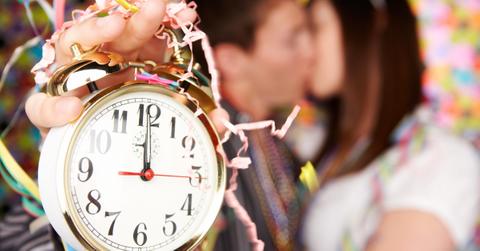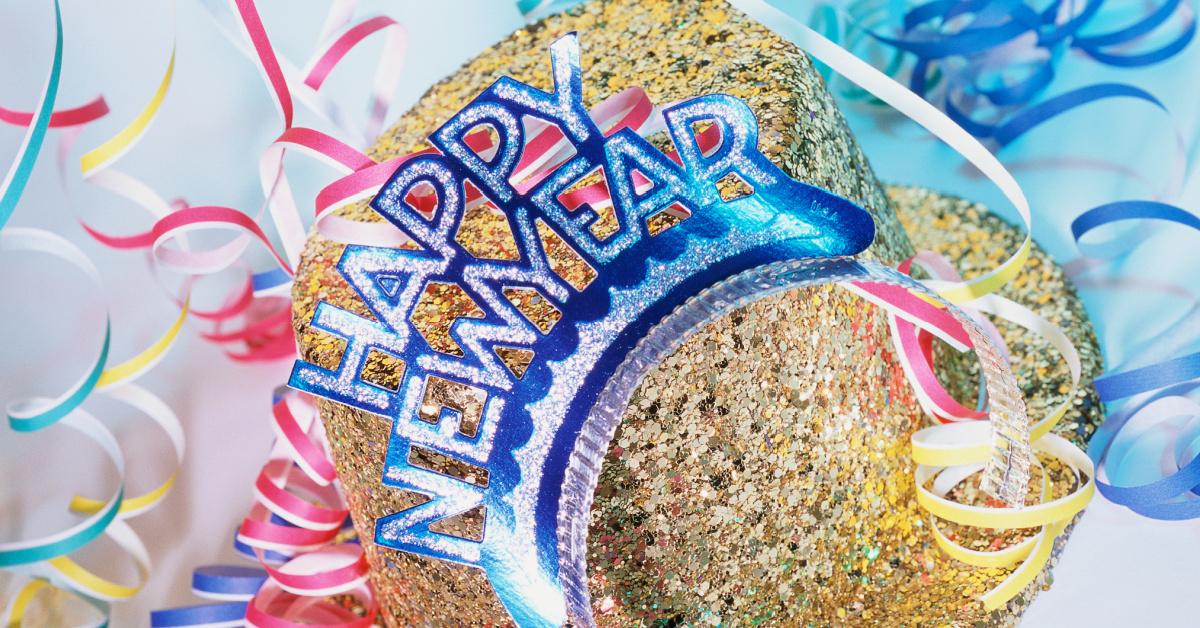What Does “Auld Lang Syne” Actually Mean?
Published Dec. 31 2020, 12:55 p.m. ET

When you take a second to examine the traditions behind New Year’s Eve, some of them really don’t make that much sense. Like the ball drop in Times Square. We all know that the new year is marked by the ball dropping, but why is that? Why do people kiss each other? Why does anyone want to stay up until midnight instead of going to sleep? Sleep is the best!
But the most confusing NYE detail is definitely the song “Auld Lang Syne.” It’s the first song that millions of people hear every year, and even though we all try to sing along to it, let’s be real: We don’t really know the words, and we don’t really know what the words mean, either. So, it’s time to solve the mystery: What does “Auld Lang Syne” mean?

What does “Auld Lang Syne” mean?
Here are the lyrics to the first verse and chorus of the song:
Should old acquaintance be forgot,
and never brought to mind?
Should old acquaintance be forgot,
and auld lang syne?
For auld lang syne, my dear,
for auld lang syne,
we'll take a cup of kindness yet,
for auld lang syne.
The song started out as a poem from Scottish poet Robert Burns, though he didn’t compose the entire thing himself. It was actually already an old song back in his day — in 1788, he sent a copy of it to the Scots Musical Museum and claimed that his version of it, which he had copied down after hearing “an old man” sing it, was the first-ever written version.
Burns’ version of the song was written in Scots, which translates more or less directly to standard English, with the exception of the “auld lang syne” part. In short, “auld lang syne” literally translates to “old long since,” but it’s basically a poetic way of saying “old times,” “days gone by,” or “long ago.”
The song starts out with a rhetorical question: Should we completely forget about our old friends, acquaintances, and days gone by, never thinking about them again? People generally just sing the first verse and chorus which don’t really answer the question except for the line, “we’ll take a cup of kindness yet,” which implies some kind of toast is happening.
The later verses of the poem and song list things the singer has done with those old friends in days gone by, like picking daisies, paddling in streams, and running around hills together. By the final verse, the speaker has decided that no, we shouldn’t forget about our old friends. Instead, we should think fondly of the times we spent together… and maybe have a drink to celebrate.
It makes sense, then, that “Auld Lang Syne” has become the de facto New Year’s Eve song — It’s all about reflecting on the past, looking toward the future, and drinking. As it turns out, it’s actually kind of perfect for New Year’s Eve, even if most of the people singing it have no idea what they’re actually saying.